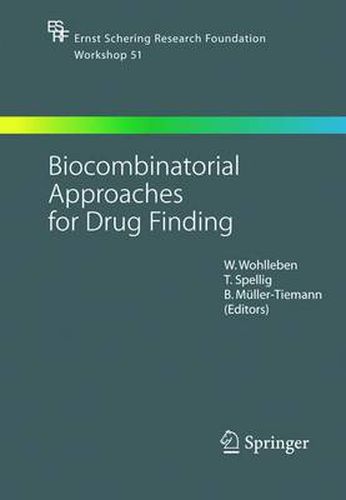Readings Newsletter
Become a Readings Member to make your shopping experience even easier.
Sign in or sign up for free!
You’re not far away from qualifying for FREE standard shipping within Australia
You’ve qualified for FREE standard shipping within Australia
The cart is loading…






Genome- and proteome-based research is generating a significant increase in the number of available drug targets. Correspondingly there is an increasing need for novel, diverse compounds, particularly based on natural compounds, as screening resource. The purpose of the Ernst Schering Research Foundation Workshop 51 was to provide a forum for an open exchange on perspectives and limitations of biocombinatorial synthesis and the significance of this technology for future drug discovery in light of this challenge. Experts from academia and industry provided contributions covering: the significance of natural compounds for state-of-the-art drug discovery; the underlying basic principle for the biosynthesis of highly complex compounds; and the scope and limitations of combinatorial biosynthesis regarding formation, identification, optimisation, isolation and manufacturing of novel biologically active entities.
$9.00 standard shipping within Australia
FREE standard shipping within Australia for orders over $100.00
Express & International shipping calculated at checkout
Genome- and proteome-based research is generating a significant increase in the number of available drug targets. Correspondingly there is an increasing need for novel, diverse compounds, particularly based on natural compounds, as screening resource. The purpose of the Ernst Schering Research Foundation Workshop 51 was to provide a forum for an open exchange on perspectives and limitations of biocombinatorial synthesis and the significance of this technology for future drug discovery in light of this challenge. Experts from academia and industry provided contributions covering: the significance of natural compounds for state-of-the-art drug discovery; the underlying basic principle for the biosynthesis of highly complex compounds; and the scope and limitations of combinatorial biosynthesis regarding formation, identification, optimisation, isolation and manufacturing of novel biologically active entities.